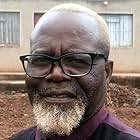Disclaimer – I lived in South Africa from 1977 to 1980 and working as a Professor in Johannesburg I came up against the problems of Apartheid many times. Because I was involved in some activities that might be considered seditious (admitting the first Blacks to post-graduate training, working as the only white Clinical Psychologist in an all- Black psychiatric hospital, working to create a rapprochement between isangomas in sub Saharan Africa) I also came into contact with the authorities, although not as badly as the central character. I did, however, spend 17 days in an African prisoner of war camp in Zambia, where the torture and interrogation techniques were not dis-similar).
The film gives an accurate portrayal of the schisms in South Africa during the end of the Apartheid era – between Afrikaneers and English whites and between Blacks and whites, and even within these groups.
Nigel Hawthorne (who was born in South Africa) gives a bravura performance as the Colonel in charge of interrogation. This ranks right up there with his work in "The Madness of King George" (1996).
Eric Stoltz doesn't really show the conflicts that many liberal whites showed, so one has to wait for his sessions with Hawthorne for the action to heat up.
The scenes between Hawthorne and Lou Gossett are equally notable.
Arthur Penn directs, this his last film. Penn is famous for such films as Bonnie and Clyde (1967), "The Miracle Worker" (1962), and "Little Big Man" (1970). The current film shows his heritage from his work on Playhouse 90 which this film more represents that the wide screen films he is famous for.






















